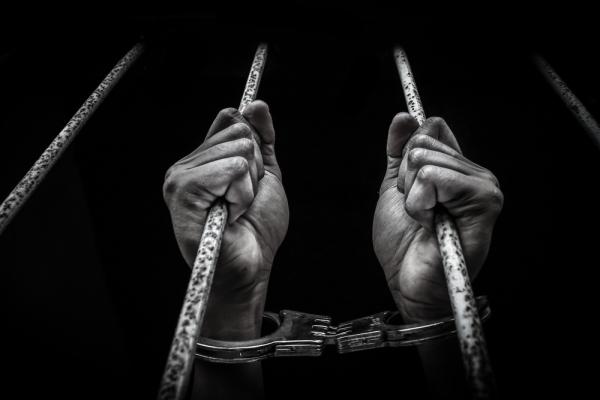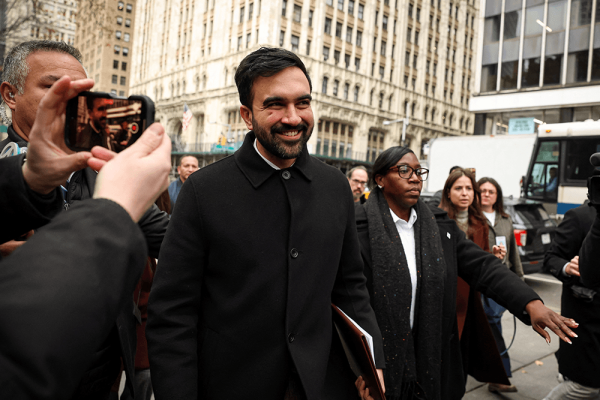This year’s “lame duck” session of Congress (the time between the most recent election and when the newly elected Congress takes office in January) has the potential to deliver an important first step to reform our badly broken and completely racialized criminal justice system. For the first time in nearly ten years, national legislation could catalyze a badly needed set of reforms to the nation’s prison system, and even more importantly, start to focus on the draconian sentencing laws that have driven our nation’s status as the world’s most prolific jailer and its deliberately disproportionate impact on people of color.
The Circle of Protection, a coalition of theologically and politically diverse national Christian denominations and organizations that Sojourners co-chairs, is committed to protecting the poor and vulnerable in government funding and legislative debates. We explained the importance of a new and bi-partisan the bill awaiting action in the Senate in a written letter being sent this week to urge Senators to support the bill:
The FIRST STEP Act (S.3649) includes prison reform provisions that will end the shackling of pregnant inmates, enhance compassionate release for terminally ill and elderly prisoners, assist returning citizens with obtaining government ID documents, and fix the earned time credit system.
The bill also includes meaningful efforts to address unjust sentencing laws. We applaud the bipartisan efforts of Congressional leaders and the White House to ensure that this package includes sentencing reforms. These changes aim to restore more proportional sentences and reduce the rates of recidivism.
The Act allocates additional financial resources for rehabilitative programming and should thus reduce wait times. It increases access to prisons by faith-based organizations and volunteers. It also creates an independent review committee to assist the Attorney General in selecting a risk assessment tool. Risk assessment must be done in a way that does not exacerbate racial disparities in the criminal justice system.
Our churches and organizations work with millions of people on the margins, including many who are somehow involved in the criminal justice system. We see in their experiences the shortcomings of our criminal justice system and the disproportionate impact in communities of color.
While more must be done to reform America’s criminal justice system, this bill is indeed an important first step. We encourage you to pass the FIRST STEP Act (S. 3649) before the end of the year.
There are a few points here worth underscoring. The first is the vital importance of including sentencing reforms to the final bill, which the bill that has already passed the House of Representatives did not do. One specific thing that the Senate bill would do is to reduce the mandatory minimum sentences for serious drug felonies from twenty years to fifteen. It would also provide some measure of retroactive and long-delayed justice for about 9,000 overwhelmingly black Americans whose sentences for crimes related to crack cocaine were so disproportionately harsh that someone convicted for distributing powder cocaine (with mostly white users) would need to possess 100 times as much before triggering the equivalent mandatory minimum sentence. A 2010 law modified this disparity from 100 to 1 to 18 to 1, a significant improvement, but only for future drug felony cases and not for those who had already been sentenced. The fact that crack cocaine was punished so much more harshly than powder cocaine prior to 2010 had a dramatically racially disproportionate impact based on who used the different forms of cocaine, punishing black drug users much more harshly than white drug users.
This bill is aptly named. The First Step Act is just that and no better — a first, extremely modest step on what will need to be a much longer path of extensive reforms to a deeply broken system. That system can best be understood, as Bryan Stevenson and others have so clearly pointed out, as the direct evolution of slavery into the system of mass incarceration.
In a Congress and with a White House that have shown themselves over the last two years to be consistently hostile to the needs and lives of vulnerable communities and communities of color, this bill would represent a small measure of progress over the status quo, a rare case of bipartisan agreement and cooperation, and an official recognition, codified into law, by politicians in both parties that the current system needs reform.
The danger here, even if the bill does pass, is that politicians who are either averse to the political risk of wider-ranging reform or actively hostile to such reform will point to their votes for this bill and its passage as having fixed the problem. This risk is real, but I believe that as Christians we should support this bill nonetheless — as a first step. The reforms this bill includes will have actual impacts on the lives of real human beings who are caught up in this terrible system. Not for enough people and not nearly the extent of changes that true justice would require, but a measure of grace and mercy that is not available under current law.
Politically speaking, despite the change in parties in the House of Representatives, there is no guarantee that a better bill would emerge from the next Congress and be signed into law by the president. Regardless of this bill’s fate, we should and will fight for further criminal justice reform in the next Congress.
On an issue that has been stuck and stymied for so long by political gridlock, we should take this first step with eyes open, with the faith and commitment to continue striding forward until we achieve the true transformative change we seek and need.
Got something to say about what you're reading? We value your feedback!






